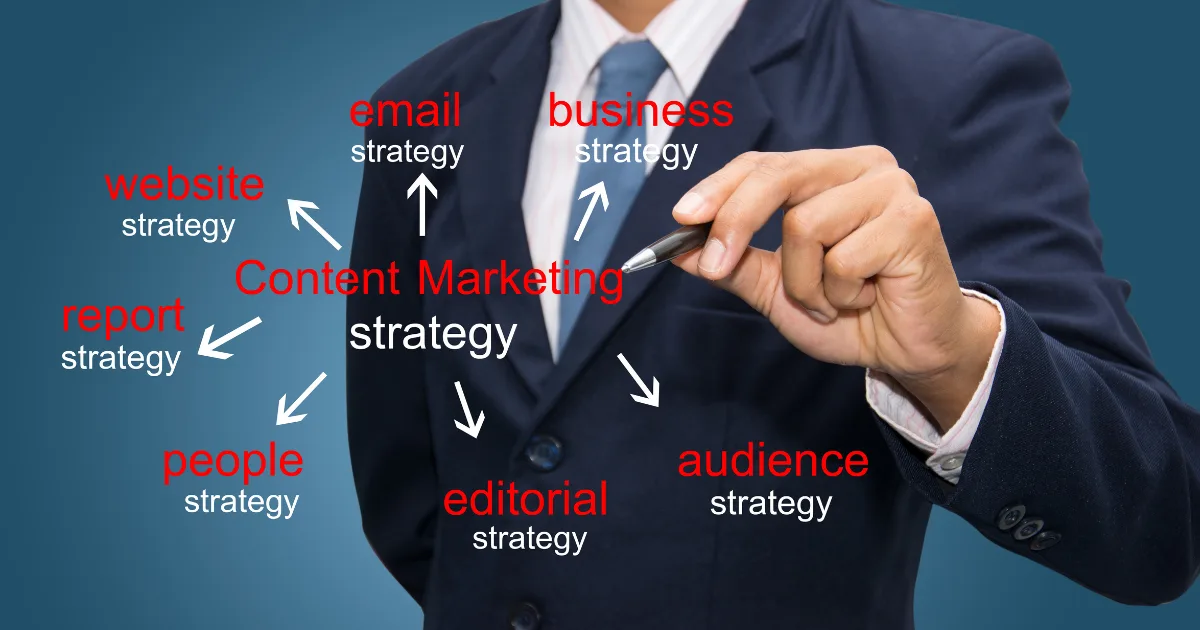Listen to this Article
What Is Content Marketing?
Before diving right into the deep end, let’s clearly understand what content marketing is. Content marketing is creating and distributing valuable, relevant, consistent content. Why? Because your audience is looking for it. Consumers are researching their purchases and their solutions more now than ever before. They don’t want to be sold to. They want to make their own decisions about why, how, and who to purchase from.
Content can take various forms, including blog posts, articles, videos, infographics, social media updates, podcasts, and more. The goal of your content marketing strategy is to provide information, entertainment, or education that resonates with your target audience. As they enjoy and consume your content, they are encouraged to take action, such as making a purchase or signing up for a newsletter.
Building Brand Awareness
Next, a key benefit of content marketing is its ability to build brand awareness. By consistently creating and sharing high-quality content that addresses your audience’s pain points or interests, you can position your brand as a reliable source of information. Over time, this establishes trust with your audience. And when they are ready to take the next step, your brand is top-of-mind.
Establishing Authority and Credibility
Today’s world is information-driven. Consumers crave expertise and credibility. And that’s where your content marketing strategy comes in. Content marketing allows your business to showcase its industry knowledge and authority. You can establish your brand as an industry leader through well-researched, informative, and thought-provoking content. Customers who perceive your brand as knowledgeable and credible are more likely to choose your services over your competitors.
SEO Benefits
Content marketing and search engine optimization (SEO) go hand in hand. Search engines like Google prioritize websites that consistently produce high-quality content. By writing valuable content and optimizing it with relevant keywords, search engines will push them higher up in search results. That means more organic website traffic, more prospects seeing your content, getting to know your brand, and converting to clients.
Lead Generation
Content marketing is an effective way to generate leads. By offering valuable content to your audience, you can encourage them to share their contact information, such as email addresses, in exchange for downloadable resources, like e-books or webinars. These leads can be nurtured over time through email marketing campaigns, eventually converting them into paying customers.
Relationship Building
The real value of content marketing lies in its ability to nurture relationships with your audience. By consistently providing value through your content, you can engage with your customers on a deeper level. This interaction creates a sense of community and trust, which is essential for customer retention. Engaging with your audience through comments, social media, and email further strengthens the bond between your brand and your customers. Don’t let your communication be a one-way street. Consumers want to hear from your business and about your business.
Adaptable and Versatile
Content marketing is not a one-size-fits-all. It can be tailored to suit your target audience’s specific needs and wants. You can experiment with different content formats, platforms, and distribution strategies to see what works best for your brand. This flexibility allows your business to remain competitive even when the digital landscape or industry expectations shift.
Cost-Effective Marketing
Plus, content marketing is often more cost-effective than traditional advertising methods. While paid advertising can quickly work through your budget, content marketing offers long-term value. Once created, high-quality content can continue attracting and engaging your audience for years, perhaps with minimal updates. This long-term return on investment (ROI) makes content marketing an efficient and budget-friendly choice for businesses.
Measurable Results
Unlike some marketing efforts, content marketing provides measurable results. With the help of analytics tools, you can track the performance of your content and campaigns. You can monitor metrics such as website traffic, conversion rates, click-through rates, and social media engagement. This data-driven approach allows you to make informed decisions, refine your strategy, and optimize your content for better results.
Conclusion
Content marketing is not a mere trend; it’s a cornerstone of modern marketing strategies. It offers businesses a sustainable path to growth by building brand awareness, establishing authority, boosting SEO, generating leads, nurturing relationships, and more. Because it’s adaptable, cost-effective, and measurable, content marketing is a valuable tool that can shift with your business as it grows.
Ready to grow your business with proven marketing techniques? Contact our expert team for a customized plan to improve your customer acquisition strategies.










